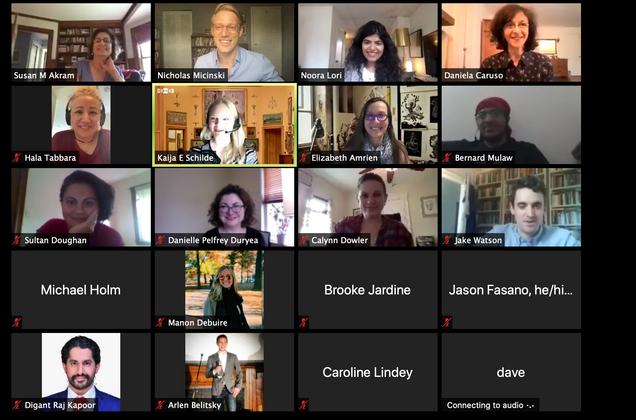Event Highlights: UN Global Compacts: Governing Migrants and Refugees
On Tuesday, June 30, 2020 CSE Visiting Researcher Nicholas R. Micinski presented his book project analyzing the global compacts and their impact on global migration governance in a webinar entitled “UN Global Compacts: Governing Migrants and Refugees.” The webinar was sponsored by the Center for the Study of Europe in collaboration with the Pardee School’s Forced Migration and Human Trafficking Initiative (FMHT).
Migration has once again made it to the top of the global governance agenda. In just a few years, the UN adopted three landmark agreements: the New York Declaration for Refugees and Migrants, the Global Compact on Refugees (GCR), and the Global Compact for Migration (GCM). What are the causes and consequences of the compacts? And will the compacts improve the lives of migrants and refugees? Nicholas Micinski’s project traces the development of cooperation on migration both inside and outside of the UN system, in addition to the specific legal contributions of the New York Declaration, GCR, and GCM to international law and global governance. He finds the Global Compacts are part of three shifts in global governance: first, from hard to soft law; second, from human rights to humanitarian aid; and third, from the politics of the Cold War to nationalism. He also discusses the role of the EU in global migration governance.
Introduction by Prof. Kaia Schilde. Response by Prof. Susan M. Akram. Moderated by Profs. Kaia Schilde and Noora Lori, FMHT Co-directors.
Nicholas R. Micinski is the ISA James N. Rosenau Post-Doctoral Fellow and a Visiting Researcher at the Center for the Study of Europe at Boston University. Nick was research associate at the Ralph Bunche Institute for International Studies and the Future UN Development System Project. Nick has taught undergraduate and graduate courses at Baruch College and Boston University.
Susan M. Akram is Clinical Professor of Law at Boston University School of Law and directs BU Law’s International Human Rights Clinic, in which she supervises students engaged in international advocacy in domestic, international, regional, and UN fora. Professor Akram is a leading scholar on refugee law and has published widely on issues related to asylum, refugees, and international law.

